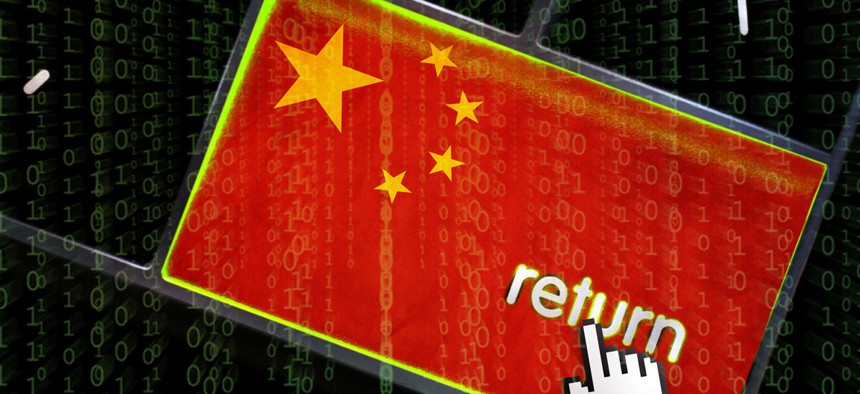The Chinese Government’s Love-Hate Relationship with the Internet

Duc Dao/Shutterstock.com
For the Chinese government, things like smartphone apps are a serious threat to the state.
Most people associate the phrase “national security” with guns and tanks. For the Chinese government, things like smartphone apps are also a serious threat to the state.
The People’s Republic of China Cybersecurity Law, which was published last week (translated into English here), directs a number of decrees at entities providing “critical information infrastructure.” The term is never defined, as is often the case in Chinese law. But it likely refers to any tech company of a certain scale and with lots of user data—think big tech companies like Apple, Huawei, Baidu, and Uber.
Many of the provisions in the draft law, which has yet to formally pass, order tech companies to provide basic protections for users, like not selling data to other companies without their knowledge and not knowingly distributing malware. Other sections show how the government will continue to exert a tight grip on China’s internet companies. These include measures that give the state the power to cut off the internet to “protect national security,” as well as provisions that require users to register for services with their real names and compel companies to store user data inside China.
None of the provisions will come as a surprise to anyone who is familiar with China’s internet industry. But what makes this draft law significant is its rhetoric.
The phrase “national security” is carefully chosen. By co-opting this phrase the Chinese government is sending a signal that hacking, privacy, and censorship are matters of the highest political priority. This ensures that restrictions will remain in place for a long time. It also brings the web into a broader push to introduce stronger controls on a wide variety of industries in the name of national security.
The timing of the draft law’s release heightens the government’s somewhat conflicted stance towards its internet. While the state council continues to promote controls in the name of national security, premier Li Keqiang has aggressively pushed a policy known as “Internet Plus.”
The plan calls for the government to support internet startups looking to shake up sectors like education, finance, and transportation. While vague, it paints a promising picture for Chinese building the next Uber, Coursera, or PayPal in China. At the same time, the failure of a state-owned Chinese bank due to internet-based competitors could be considered a matter of “national security,” and the disruption of other traditional players may run against this imperative.
Neither “Internet Plus” nor “national security” have yet been cited to justify newly controversial decisions. But their simultaneous emergence paints an evolving view of the government’s relationship with the web. The internet can be harnessed to boost private enterprise, but party will keep a tight grip on the reins.
(Image via Duc Dao/ Shutterstock.com)
NEXT STORY: Open Data Can Tell You the Worst Place to Park





